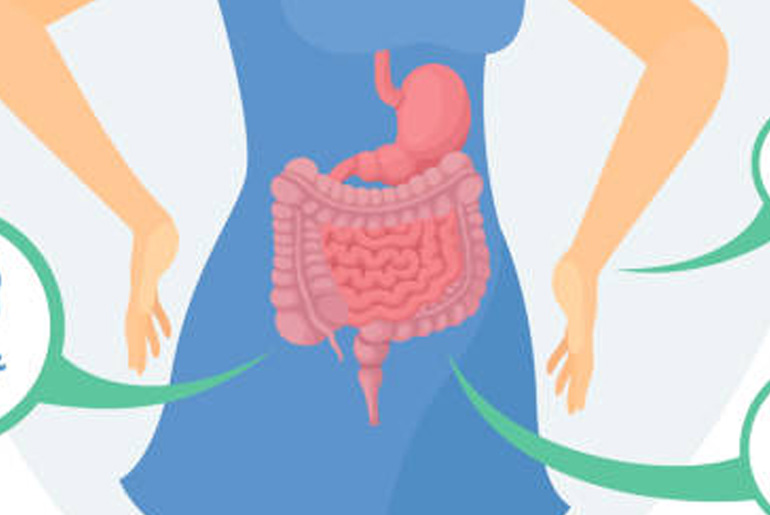Gut health is essential for overall well-being, affecting digestion, immunity, and even mental health. Many people experience stomach issues like bloating, indigestion, constipation, and acid reflux due to poor dietary choices, stress, and an imbalance in gut bacteria. These problems often arise from factors such as chronic stress, excessive antibiotic use, food intolerances, and a poor diet lacking essential nutrients. A weakened gut lining can also contribute to leaky gut syndrome, allowing harmful substances to enter the bloodstream, triggering inflammation and immune responses.
Poor digestion can lead to inadequate nutrient absorption, causing fatigue, skin issues, and a weakened immune system. To restore gut health naturally, experts recommend consuming a fiber-rich diet, incorporating probiotics, staying hydrated, managing stress, and avoiding processed foods. These remedies help balance gut bacteria, strengthen digestion, and promote overall well-being by addressing the root causes of stomach issues.
1. Incorporate Fermented Foods for Probiotics: Fermented foods are rich in probiotics, which are beneficial bacteria that help maintain a healthy gut microbiome. Consuming foods like yogurt, kefir, kimchi, sauerkraut, and kombucha can restore bacterial balance, improve digestion, and reduce bloating. These foods support the production of short-chain fatty acids that promote gut healing and reduce inflammation. Regular intake of probiotics has also been linked to a stronger immune system and better nutrient absorption.
2. Increase Fiber Intake for Better Digestion: Fiber is essential for digestive health as it supports bowel movements, feeds beneficial gut bacteria, and prevents constipation. Soluble fiber (found in oats, bananas, and apples) helps soften stools, while insoluble fiber (found in whole grains, nuts, and vegetables) adds bulk, aiding regularity. Additionally, prebiotic fibers in foods like garlic, onions, and asparagus help nourish probiotics, ensuring a diverse and healthy gut microbiome. A high-fiber diet reduces the risk of gut inflammation and conditions like irritable bowel syndrome (IBS).
3. Reduce Sugar and Processed Foods to Prevent Inflammation: Excessive sugar and processed foods contribute to an unhealthy gut by promoting harmful bacteria and yeast overgrowth, leading to digestive issues like bloating and acid reflux. Artificial sweeteners, refined carbohydrates, and trans fats disrupt the gut microbiota, increasing the risk of inflammation and leaky gut syndrome. Cutting back on sugary drinks, processed snacks, and fast food can significantly improve gut health and overall digestion. Replacing them with whole foods, healthy fats, and protein-rich meals helps restore gut balance.
4. Stay Hydrated and Manage Stress for Gut-Brain Balance: Water is crucial for digestion as it helps break down food and absorb nutrients efficiently. Dehydration often leads to constipation and sluggish digestion. Drinking enough water daily ensures smooth bowel movements and prevents gastrointestinal discomfort. Additionally, stress has a direct impact on gut health due to the gut-brain connection. High stress levels can trigger stomach issues like bloating, cramps, and acid reflux. Incorporating relaxation techniques like meditation, deep breathing exercises, yoga, and adequate sleep can help regulate gut function and prevent stress-related digestive disorders.
5. Use Natural Gut-Healing Remedies for Quick Relief: Several natural remedies can help soothe digestive discomfort and support gut healing. Ginger is known for its anti-inflammatory properties and ability to reduce bloating and nausea. Aloe vera juice helps with acid reflux and strengthens the gut lining. Peppermint tea relieves gas and bloating, while bone broth provides collagen and essential nutrients that repair the gut lining. These natural solutions can be easily incorporated into daily routines to promote better digestion and overall gut health.
By following these expert-recommended tips, individuals can restore gut balance, reduce stomach issues, and improve their overall health. A combination of a fiber-rich diet, hydration, stress management, and natural remedies can make a significant difference in maintaining a strong and healthy digestive system.
Disclaimer:
The information contained in this article is for educational and informational purposes only and is not intended as a health advice. We would ask you to consult a qualified professional or medical expert to gain additional knowledge before you choose to consume any product or perform any exercise.







